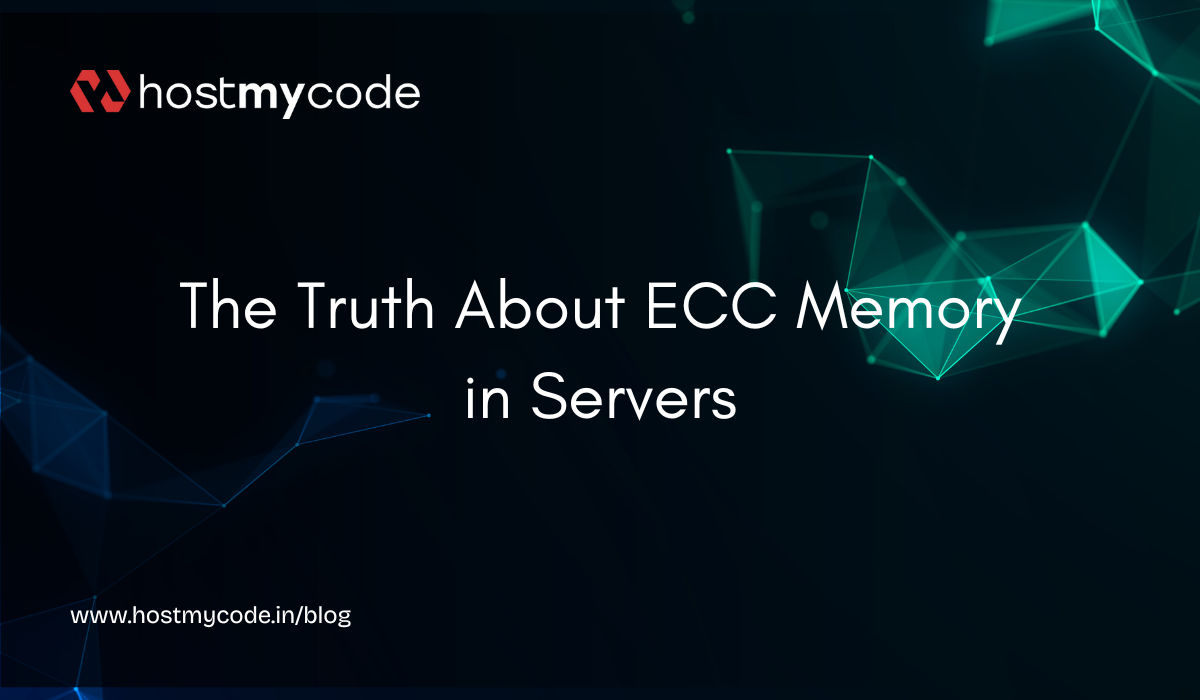In this tutorial, we'll explain the truth about ECC memory in servers. When it matters and when It doesn’t.
When it comes to server hardware, one topic that often causes confusion is ECC memory. You’ll see it listed in specifications for enterprise servers, and it’s often described as “essential” for data integrity. But does every server actually need it? Let’s clear up the confusion and look at when ECC memory truly matters—and when it doesn’t.
What ECC Memory Actually Does
ECC stands for Error-Correcting Code. Unlike standard RAM, ECC memory can detect and correct single-bit memory errors automatically. These errors happen more often than most people realize—caused by electrical interference, cosmic rays, or voltage fluctuations.
Without ECC, these random errors might lead to corrupted data, crashes, or even application-level inconsistencies. In a personal computer, that might just mean a blue screen. In a server, it could mean a corrupted database or bad transaction logs—issues that can be expensive or impossible to reverse.
When ECC Memory Matters
ECC memory is most important in mission-critical environments—systems where data accuracy and uptime directly impact business operations. These include:
- Database servers where even a single corrupted record can cause major problems.
- Virtualization hosts running multiple client VMs on the same hardware.
- Financial systems and scientific computing, where precision is everything.
- File and backup servers, which store large volumes of sensitive or irreplaceable data.
In these use cases, ECC memory provides a quiet but crucial layer of protection. It ensures the server can continue running reliably for years without mysterious data corruption creeping in.
When It Doesn’t Matter Much
Not every workload justifies the added cost of ECC. If you’re running a home lab, development environment, or lightweight web application, non-ECC memory is perfectly acceptable.
Modern CPUs and operating systems already include many layers of error detection. In most small-scale or non-critical use cases, the probability of a memory bit error causing a real issue is extremely low. You’ll likely never notice a difference.
For small businesses or startups, investing the extra budget in faster storage, redundant power, or better cooling can often provide greater performance and reliability improvements than ECC memory alone.
ECC Memory Compatibility and Cost
ECC memory typically requires server-grade CPUs and motherboards. Intel Xeon and AMD EPYC platforms, for example, are designed for ECC support, while consumer-grade chips like Intel Core or AMD Ryzen often aren’t.
ECC modules are slightly more expensive than standard DDR memory, but the price gap has narrowed in recent years. If your hardware supports it and your workload justifies the reliability, it’s a smart investment.
The Bottom Line
ECC memory isn’t about performance—it’s about stability and trust.
If your server handles critical workloads, data-heavy operations, or anything where corruption is unacceptable, use ECC memory.
If you’re running test environments, small websites, or personal projects, non-ECC is fine—and your money is probably better spent elsewhere.
In the end, ECC memory matters when accuracy and uptime are priorities. It doesn’t when you can afford a reboot or two. Understanding this distinction helps you build smarter, more cost-effective servers—without buying into unnecessary hype.
Checkout our dedicated servers India, Instant KVM VPS, and cPanel Hosting India

